Form Ct-1040 Nr/py - Connecticut Nonresident And Part-Year Resident Income Tax Return And Instructions - 2011 Page 10
ADVERTISEMENT
For more information on the requirements for a surety bond,
Example 1: Laura, a part-year resident who moved out of
contact DRS and request a copy of Conn. Agencies Regs
Connecticut in June 2011, sold property on the installment basis
§12-717(c)(4)-1, Form CT-12-717A, Change of Resident Status
in April 2011. She will receive annual installment payments
- Special Accruals, Connecticut Surety Bond Form, and Form
for fi ve years. She must accrue the entire gain on the sale of
CT-12-717B, Change of Resident Status - Special Accruals,
the property to the portion of 2011 when she was a resident
Other Acceptable Security Form.
of Connecticut because her right to receive the gain was fi xed
and the amount was determinable before the time she changed
Change From Nonresident to Resident
her residency.
If you moved into Connecticut during the taxable year, items
of income, gain, loss, or deduction that accrue to the period of
Example 2: Rick, a resident of Connecticut, retired from his
the year prior to your Connecticut residency are not included in
Connecticut employment on September 1, 2011, and moved to
your Connecticut-sourced income. However, items of income
Florida. His employer notifi ed him on August 15, 2011, that
he would receive a $1,000 bonus on September 15, 2011. He
derived from or connected with Connecticut sources may not
must accrue the $1,000 bonus to the portion of 2011 when he
be accrued to the nonresident period and must be included in
was a resident because the right to receive the bonus was fi xed
calculating your Connecticut-sourced income for that year.
and the amount was determinable before the time he changed
Example: Nikki was a California resident from January 1,
his residency.
2011, until July 31, 2011. She became a Connecticut resident on
Example 3: Emma, a Connecticut resident, won the Connecticut
August 1. While a resident of California, Nikki earned $10,000
Lottery in 2011. The proceeds from her wager were reported
for work performed in that state, but she did not receive payment
on federal Form W-2G. Emma will receive her winnings on the
for that work until September 30, 2011.
installment basis for 20 years. During the 2011 taxable year,
Nikki also owned a condominium in Connecticut, which she
Emma moved out of Connecticut and is a part-year resident
rented to a third party from January 1 to July 31, 2011. She
because she changed her permanent legal residence. Ordinarily,
received payment of the rent for the fi rst four months of the
Emma’s Connecticut Lottery winnings would be subject to
year while she was living in California and she received the
special accrual; however, Emma may avoid special accrual
remaining payments after she became a Connecticut resident.
on those lottery winnings as long as the Connecticut Lottery
Corporation continues to withhold Connecticut income tax
Nikki will file a Connecticut part-year resident return for
from those winnings. Emma will remain subject to Connecticut
2011. The $10,000 of California source income earned before
income tax for the years during which the lottery winnings are
Nikki changed her residency is accrued to her nonresidency
received.
period even though she received the payment after becoming a
Connecticut resident. The rental payments from Connecticut real
If Emma won another state’s lottery during 2011, she would be
estate are considered Connecticut-sourced income regardless of
subject to Connecticut income tax while a Connecticut resident.
when she received this income. Therefore, the entire amount of
If Emma moves out of Connecticut, and is a part-year resident
rental income is includable in her Connecticut adjusted gross
because she changes her permanent legal residence, her lottery
income and none of it is subject to special accrual.
winnings would be subject to special accrual.
Forms and Schedules Included in This
Payment of Tax
Booklet
If you moved out of Connecticut during the taxable year and
This booklet contains forms you may have to complete in
you have items of income or gain subject to special accrual,
addition to Form CT-1040NR/PY. Below is a description
you must either:
of these forms and an explanation of who should complete
• Include the items of accrual in the calculation of tax in the
them. A self-employed nonresident or part-year resident (for
year you changed your residence; or
his or her nonresidency period) who carried on business both
• File a surety bond or other security and pay the tax as a
in and outside of Connecticut may also be required to fi le
nonresident in the year(s) the income is actually received.
Schedule CT-1040BA, Nonresident Business Apportionment.
Surety Bond
See Page 35 for instructions.
You may elect to defer the payment of Connecticut income
Form
Who Should Complete
tax on items of special accrual by fi ling a surety bond with
All nonresidents and part-year residents
Schedule CT-SI
DRS in an amount not less than the amount of the additional
Parts 1 and 2
Connecticut income tax that would be payable if no surety
A nonresident employee or part-year
bond or other security were fi led. If you choose this option, you
Employee
employee (for his or her nonresidency
Apportionment
must fi le Form CT-1040NR/PY for the taxable year when you
period) who worked in and outside of
Worksheet
change your residence. Include a separate statement showing
Connecticut and does not know the actual
the nature and amount of each item of special accrual as of the
amount of Connecticut-sourced income.
date of change of residence together with a computation of the
All part-year residents
Schedule CT-1040AW
additional Connecticut income tax which would be due if the
election to fi le a surety bond had not been made.
Page 10
ADVERTISEMENT
0 votes
Related Articles
Related forms
Related Categories
Parent category: Financial
 1
1 2
2 3
3 4
4 5
5 6
6 7
7 8
8 9
9 10
10 11
11 12
12 13
13 14
14 15
15 16
16 17
17 18
18 19
19 20
20 21
21 22
22 23
23 24
24 25
25 26
26 27
27 28
28 29
29 30
30 31
31 32
32 33
33 34
34 35
35 36
36 37
37 38
38 39
39 40
40 41
41 42
42 43
43 44
44 45
45 46
46 47
47 48
48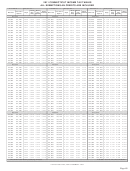 49
49 50
50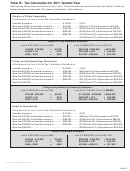 51
51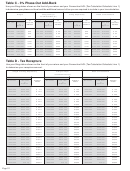 52
52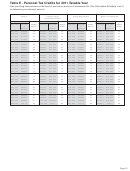 53
53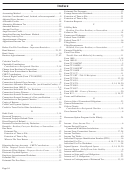 54
54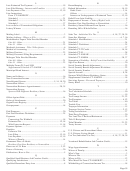 55
55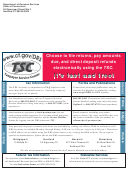 56
56








